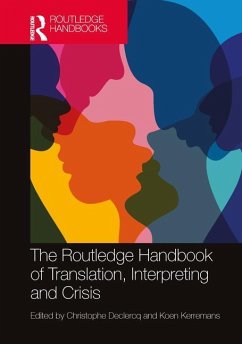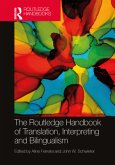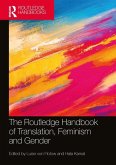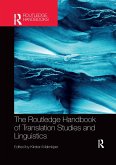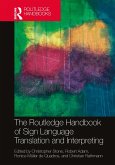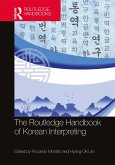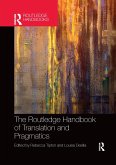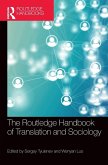This handbook offers a broad-ranging overview of the study of translating and interpreting in conflict and crisis settings and takes the field in new directions.
Covering a wide selection of multimodal contexts that build on the fundamentals of translation, interpreting, and their in-between hybrid forms of mediation, the handbook is divided into four parts. The opening part covers perspectives on policy and practices, whether contemporary or historical, and cases truly span the globe, from Peru and Brazil, over Belgium and Sierra Leone, to Australia, Japan, and Hong Kong. International developments require profound considerations about the professionalisation of access to language in times of crises, not least in contexts of humanitarian negotiation or conflict zone interpreting-these form the second part. The subsequent part deals with spheres of community in which language needs are positioned within frames of agency, positionality, and trust, and the challenges that these face. The contributions build on cases where interpreters act as catalysts for translation needs in settings of humanitarian aid and beyond. The final part considers language strategies and solutions in crises.
This handbook is the essential guide to translation and interpreting in conflict and crisis settings for advanced students and researchers of translation and interpreting studies and will be of wide interest in peace studies, political science, and beyond.
Covering a wide selection of multimodal contexts that build on the fundamentals of translation, interpreting, and their in-between hybrid forms of mediation, the handbook is divided into four parts. The opening part covers perspectives on policy and practices, whether contemporary or historical, and cases truly span the globe, from Peru and Brazil, over Belgium and Sierra Leone, to Australia, Japan, and Hong Kong. International developments require profound considerations about the professionalisation of access to language in times of crises, not least in contexts of humanitarian negotiation or conflict zone interpreting-these form the second part. The subsequent part deals with spheres of community in which language needs are positioned within frames of agency, positionality, and trust, and the challenges that these face. The contributions build on cases where interpreters act as catalysts for translation needs in settings of humanitarian aid and beyond. The final part considers language strategies and solutions in crises.
This handbook is the essential guide to translation and interpreting in conflict and crisis settings for advanced students and researchers of translation and interpreting studies and will be of wide interest in peace studies, political science, and beyond.
In the contributors' chapters, the readers are handed the most precious gift for any researcher: many unanswered questions and urgent topics to investigate. In fact, this Handbook benefits from the contributions of both established and expert researchers as well as new and original thinkers, who collectively encourage readers to explore a wide range of cogent and relevant topics. These encompass everything from conceptualisations of crises in multicultural and multilingual contexts, to addressing the practical yet often formidable challenges related to legal frameworks in local and international crises. Additionally, the Handbook delves into important considerations concerning the daily constraints confronted by practitioners operating in the international humanitarian and crisis- response sector. The editors elegantly managed to collate chapters that give voice to many often- marginalised regions and communities. This is a feat as decolonising and differentiating the field is among the key challenges in this area of Translation and Interpreting Studies: readers will find that this Handbook is a significant step in that direction.
-Federico M. Federici, University College London, United Kingdom
-Federico M. Federici, University College London, United Kingdom

